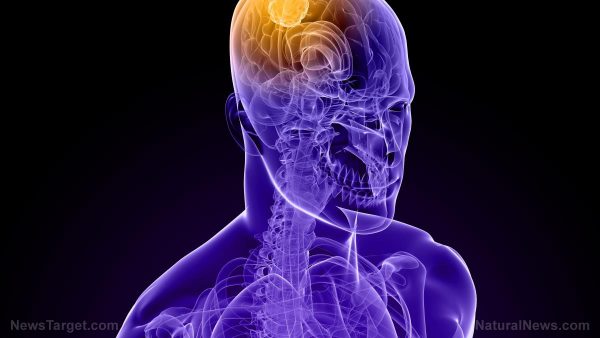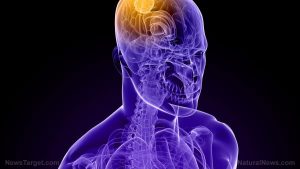
Multiple system atrophy – causes, side effects and treatments at NaturalPedia.com
Thursday, May 24, 2018 by Michelle Simmons
http://www.naturalpedia.com/multiple-system-atrophy-causes-side-effects-and-treatments-at-naturalpedia-com.html

Multiple system atrophy is a rare sporadic progressive neurological disorder. It can affect the autonomic nervous system, leading to autonomic failure; basal ganglia, resulting in parkinsonism; and/or cerebellum, causing ataxia in any combination. The cause of multiple system atrophy is not well understood. It does not appear to be inherited. However, both genetic and environmental factors are potential contributors of the disease.
Multiple system atrophy with predominant autonomic dysfunction was previously referred to as Shy Drager syndrome, which is not used anymore because every patient is affected by autonomic or urinary dysfunction. Most patients with multiple system atrophy develop the disease when they surpass the age of 40. The mean age at onset is between 50 and 70 years.

Known side effects of multiple system atrophy
The known side effects of multiple system atrophy include slowness of movement, tremor, or stiffness; clumsiness or uncoordination; impaired speech or a croaky, quivering voice; fainting or lightheadedness due to orthostatic hypotension; and bladder control problems, such as a sudden urge to urinate or difficulty urinating. Other side effects of multiple system atrophy include contractures in the hands or limbs; Pisa syndrome; antecollis; involuntary, uncontrollable sighing or gasping; sleep disorders; and feelings of anxiety or depression.
Body systems harmed by multiple system atrophy
The primary body system harmed by multiple system atrophy is the nervous system as it causes certain areas of the brain to shrink, including the cerebellum, the basal ganglia, and the brain stem.
List of foods or nutrients that prevent multiple system atrophy
There is no information on what foods or nutrients prevent multiple system atrophy.
Treatments, management plans for multiple system atrophy
Since there is no cure for multiple system atrophy, treatment is focused on improving symptoms and quality of life. Treatments may include medications for blood pressure, balance and movement problems, and stiffness; use of a pacemaker; bladder care and control; managing breathing and swallowing; and therapies, such as physical therapy and speech-language therapy.
Natural remedies for neurological issues include making dietary changes, such as limiting salt intake; exercising appropriately; and taking dietary supplements.
Where to learn more
- Does your doctor have brain damage?
- REM sleep disorder may lead to untimely death of brain cells, causing Alzheimer’s and Parkinson’s and other diseases
- 6 Potential Dangers of Eating Whole Wheat
- The Central Nervous System Responds to Toxins
- For a healthy brain and nervous system – Gotta hava GABA
Summary
Multiple system atrophy is a rare sporadic progressive neurological disorder.
Multiple system atrophy causes slowness of movement, tremor, or stiffness; clumsiness or incoordination; impaired speech or a croaky, quivering voice; fainting or lightheadedness due to orthostatic hypotension; and bladder control problems.
Multiple system atrophy may also cause contractures in the hands or limbs; Pisa syndrome; antecollis; involuntary, uncontrollable sighing or gasping; sleep disorders; and feelings of anxiety or depression.
Multiple system atrophy harms the nervous system.
Treatments for multiple system atrophy include medications, pacemaker, bladder care and control, managing breathing and swallowing, physical therapy, and speech-language therapy.
Sources include:
Tagged Under: Tags: Multiple system atrophy





